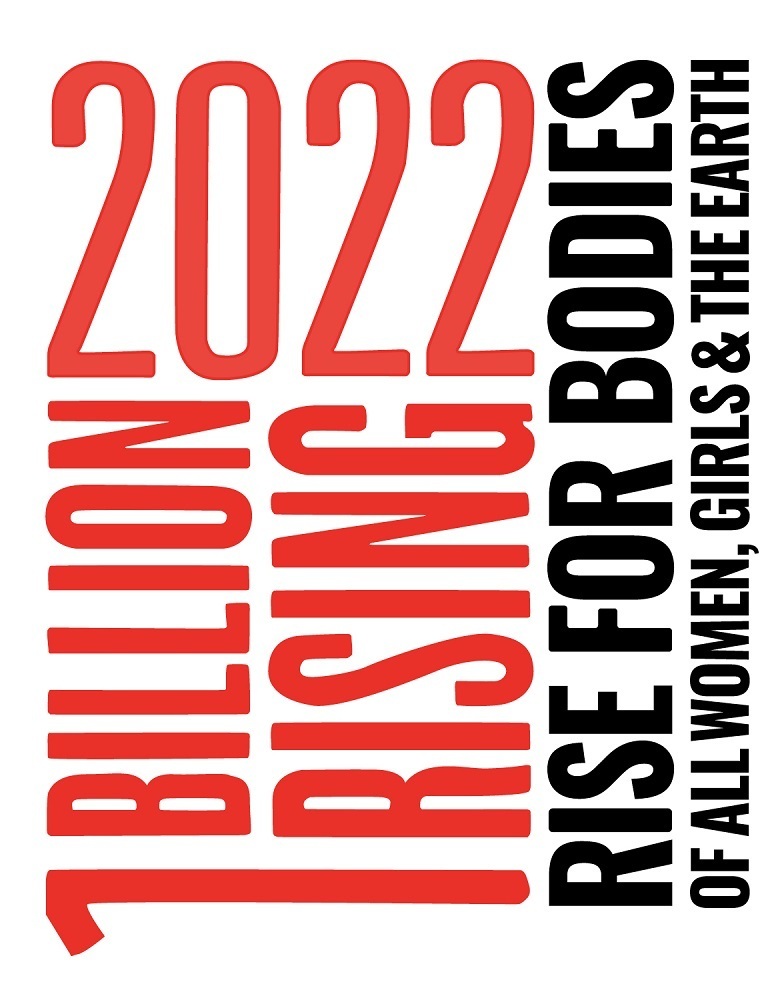This month, there is a certain day that marks the celebration of love. You’d think that would be a good thing. Instead, Valentine’s Day has become a heart-sink day for many, an expense for some (average spend in the UK £35) and another day for 50 percent of British couples that choose to ignore it.
But we don’t have to simply splash out on an awkward meal and sickly box of chocolates, moan about the consumerism or feel miserable because the whole world seems to be filled with happy couples holding hands.
Why is Valentine’s Day about couples anyway? There are so many different varieties of love – love of friends, children, parents, animals (we Brits spend £55 million on our pets on Valentine’s), the planet, the self and so on – surely it should be a more heartfelt celebration and embrace love in all its forms.
If you don’t agree with the way Feb 14 is done, you can always choose to do it differently:
 For activists, there is V-Day, One Billion Rising, which every February organises events as part of their campaign to end violence against women. This huge global event was inspired by the writer of the Vagina Monologues, V (formerly Eve Ensler) and raises millions for rape crisis and refuge centres – one way to spend your £35 in 2022.
For activists, there is V-Day, One Billion Rising, which every February organises events as part of their campaign to end violence against women. This huge global event was inspired by the writer of the Vagina Monologues, V (formerly Eve Ensler) and raises millions for rape crisis and refuge centres – one way to spend your £35 in 2022.
Jaded couples feeling the stress of having to face their infuriating best-beloved across a table strewn with rose petals, why not stay in and watch Couple’s Therapy on BBC iPlayer – mildly less painful than a Valentine’s Day meal, but you might learn how to love each other better (or leave if it’s making you that unhappy).
Singles also can watch this fascinating fly on the wall show literally about couples having therapy because they can’t stand each other and feel grateful that they’re not in a relationship. But you’re probably better off celebrating equally if not more important forms of love with friends, family or yourself.
Environmentalists might want to think of an alternative to imported roses. Go for locally-sourced, plastic and pesticide free bouquets – Bloom and Wild the letterbox flower delivery company are forgoing red roses this year for these reasons.

The bottom line is that love – and Valentine’s Day – isn’t the problem. It’s our unreal expectations that cause so much heartache. Love, as psychoanalyst Erich Fromm wrote, is an art. It requires knowledge and effort. We should not be thinking about who loves us, but whether we are any good at loving others.
Let’s get real for a moment
The reality is that the streets are not flooded with couples in love, but more often people clinging on to each other for dear life or wishing they were single or with someone else: the grass is always greener. The idea of Hallmark-card love is sold to us under false pretences. We know this but choose to believe the Disneyfied fantasy anyway.
You know you love someone when your heart races, your cheeks flush, you can’t eat, sleep, you have a dry mouth, you can’t concentrate – these are also symptoms of panic. Deep attachment is often accompanied by terror. Will they leave me for someone else? Why haven’t they called? Am I boring them? Do they like me in this top?
For parents, the anxiety is magnified. There is barely any time to be mushy about love as you struggle to keep your child under surveillance, watching for potential dangers to the point of painting the world as a cheap airport thriller.
To love is to live with the spectre of loss. Grief, as they say, is simply love enduring. Love hurts!
Why we love the way we do
Sometimes who we love – and how – is decided for us. Studies since the 1950s have shown that the ways we relate to people as adults are laid out in childhood. The interaction between your parents and you – especially your main caregiver, most probably your mother – creates neural pathways in your brain.
If you cry, for example, you will either be held and soothed, fed, ignored or yelled at. You are being trained to expect, and even seek, this response in later life. But we only know what our experiences as babies were from the way we conduct our relationships now.
Four main attachment styles have been outlined by researchers:
Secure attachment is where you had the right amount of love from birth – lucky you. Not too much it was overwhelming or smothering; not too little that you felt lost and abandoned.
Avoidant is where perhaps your parents weren’t very affectionate. Saying ‘I love you’ feels alien and wrong. For you this is safe and normal. For your partner, child or even your work colleagues maybe less so.
Ambivalent lovers may have experienced both intense almost intrusive love and withdrawal or rejection from parents. You never knew where you stood. As adults, you anxiously watch your lover, friend or boss for signs they are about to abandon you. You passionately cling then coldly withdraw before you get hurt.
Chaotic often signifies early abuse. To work on these patterns, you would need professional support.
The positive news is that these patterns are not carved in stone. It is possible to rewire our brains simply by doing things differently. But changing the way we love takes work.
You can see that while the feeling of love comes naturally – for some of us, at least – it may be hindered in its flow by fears, blocks created in our earliest experiences. It can’t always be spontaneous and instead requires some thought or planning. This does not make it less intense or real.
But if there is one thing love isn’t, it’s a bunch of shop-bought roses and a soppy heart emoji.
If you do anything this month, be real and honest about the way you love.

Savant Spy
14th February 2022
Spy Likes:
Clever, inspiring design, sublime views, a vast, clean and empty pool, solitary relaxation areas to read, write or commune with my muse.
Spy Dislikes:
Small talk, discussions about spirituality or astrology, any products containing tea tree oil or aloe (sadly am allergic), busy pools where you can’t do laps.
